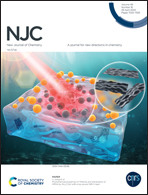Research progress of Co-based spinel oxide materials for direct methanol fuel cells
Abstract
With the increasing consumption of fossil fuels, there is an urgent need to develop a new green and clean energy source. Fuel cells have been extensively studied as a clean alternative to fossil fuels. As a green energy source, direct methanol fuel cells (DMFCs) have high energy density; however, their commercialization is restricted by the poor stability and slow kinetics of methanol oxidation reactions (MORs). One of the key strategies to overcome these problems is to develop efficient, economic and green catalysts for energy storage and conversion devices. Thus far, Pt-based electrocatalysts have been extensively used to enhance the oxidation process of CH3OH. However, since Pt-based electrocatalysts are limited by high cost and susceptibility to CO poisoning, researchers have been motivated to search for a cost-effective, highly active and durable catalytic material. In recent years, Co-based spinel oxides have been found to exhibit good potential as fuel cell electrode materials, they can be modified by defect engineering, alloying and heteroatom doping, or more active sites can be exposed by morphology regulation or carrier regulation, so as to improve their electrocatalytic performance. This review provides a comprehensive introduction to the recent development of Co-based spinel electrocatalysts for emerging MORs involved in DMFCs, and the future development of low-cost and high-performance Co-based spinel oxide catalytic materials is prospected.



 Please wait while we load your content...
Please wait while we load your content...